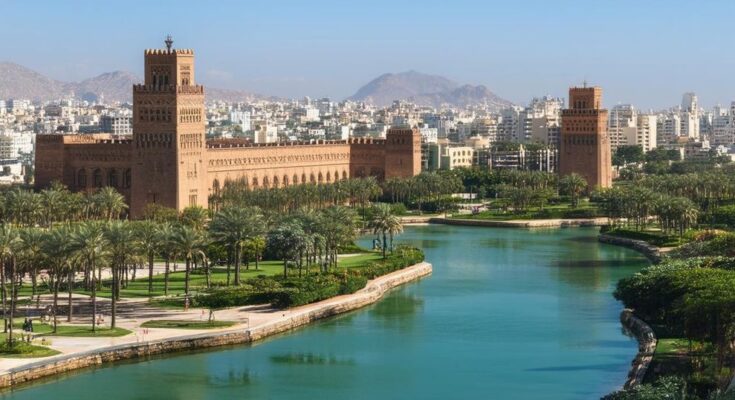At the 16th BRICS summit in Kazan, Russia, South Africa expressed strong opposition to Morocco’s potential membership, reflecting longstanding tensions over the Western Sahara dispute. This summit serves as a platform for BRICS leaders to discuss expansion, with South Africa concerned about preserving its influence. While South Africa aims to block Morocco’s entry, China has shown openness to engagement, highlighting the intricate geopolitical dynamics within BRICS.
The 16th BRICS summit commenced on October 22 in Kazan, Russia, amid significant discussions surrounding membership expansion, particularly regarding Morocco’s potential inclusion. South Africa firmly opposes this move, seeking to protect its influence within the bloc. Sources indicate that South African officials have voiced concerns about the inclusion of Morocco or Nigeria, fearing a dilution of their own standing in the group, which comprises Brazil, Russia, India, China, and South Africa. Historically, the relationship between South Africa and Morocco has been strained, primarily due to the longstanding Western Sahara dispute. In April of the previous year, South Africa successfully included the Western Sahara issue in BRICS discussions at the deputy foreign ministers’ level, aggravating tensions further. South Africa’s invitation to Brahim Ghali, leader of the Polisario Front, to attend a BRICS/Africa meeting last August, only weeks after Morocco declined South Africa’s invitation due to diplomatic rifts, intensified these hostilities. Morocco has since countered claims of having sought BRICS membership, suggesting that any such invitation from South Africa was uncoordinated with the broader BRICS agenda. The geopolitical landscape of BRICS has been shifting markedly, with the bloc’s recent enlargement to incorporate nations such as Iran, the United Arab Emirates, Ethiopia, and Egypt. These developments have enhanced BRICS’ economic power by marrying significant energy suppliers with major consumers among developing nations. Although Saudi Arabia was also announced as a prospective member, its agreement to join remains pending. Faced with international isolation due to the war in Ukraine, Russia, which chairs BRICS, has been keen to highlight the summit as a demonstration of its global engagement, welcoming 36 national delegations and six international organizations—the largest gathering of its kind since Russia’s invasion of Ukraine in early 2022. In contrast to South Africa’s hardline stance, China has demonstrated a willingness to engage with Morocco, extending an invitation for Morocco to attend the BRICS Forum 2024 in Xiamen, where Morocco was represented by its Minister of Industry and Commerce, Ryad Mezzour. Such gestures from China indicate a nuanced approach to the dynamics within BRICS, where South Africa aims to consolidate its hegemony while China seeks economic collaboration with Morocco. As the summit continues, the critical discourse will focus on BRICS’ future expansion and the balancing act required to accommodate competing geopolitical interests. With additional nations such as Malaysia, Thailand, and Turkiye expressing interest in joining BRICS, maintaining economic growth through cooperative measures presents a formidable challenge to the alliance.
The BRICS group, founded in 2009, has evolved into a major coalition of emerging economies. Recently, the coalition has expanded its membership to include several new nations, increasing its geopolitical and economic relevance. Tensions within the group, particularly related to territorial disputes and influence, manifest prominently in South Africa’s opposition to Morocco’s potential membership, primarily due to historical conflicts over Western Sahara. As the summit progresses, the interplay between member nations’ interests and aspirations for growth and collaboration provides a backdrop for discussions on the future of BRICS.
In summary, South Africa’s explicit opposition to Morocco’s bid for BRICS membership illustrates broader geopolitical tensions surrounding territorial disputes and influence within the alliance. While South Africa seeks to maintain its positional strength, China’s willingness to engage with Morocco suggests a complex web of relationships at play. As BRICS evaluates its expansion strategies amid global interest from various nations, the challenges of balancing competing interests while fostering cooperative growth remain at the forefront of the bloc’s agenda.
Original Source: www.moroccoworldnews.com




